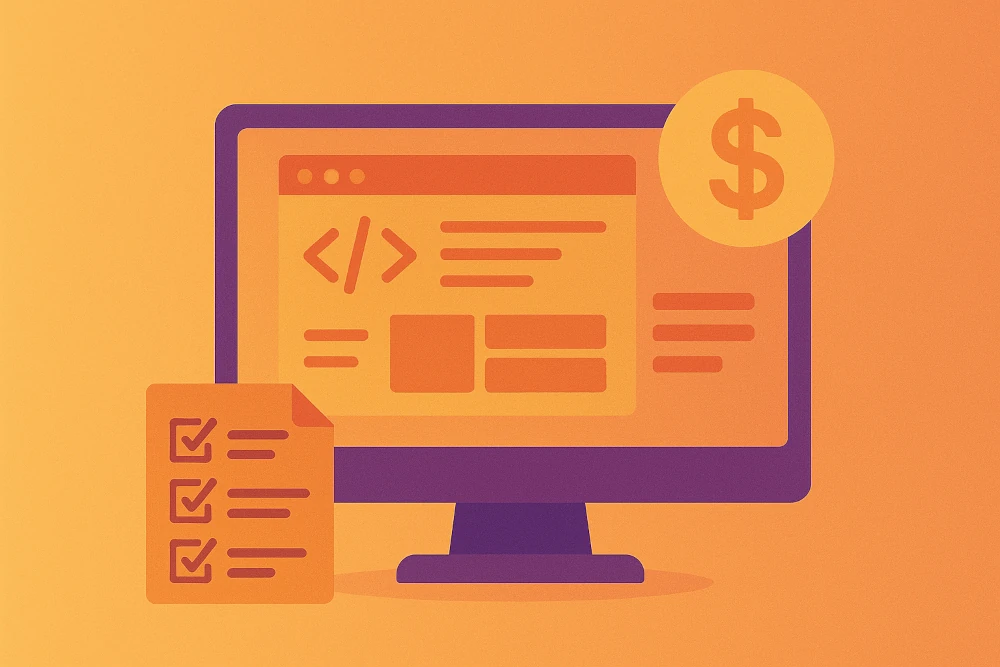In the software development game, it’s all about the supply and demand. Like buying a made-to-measure three-piece suit from Savile Row or an off-the-rack version from the high street, the cost of bespoke or custom-made software will vary from that of commercial off-the-shelf (COTS) or existing free packages. COTS applications include products like Microsoft Office and antivirus software.
Cost Factors for Bespoke Software
As with any supplier/demand equation, there are a number of areas to consider:

1) Consultation Phase
As they say, you can’t run without walking. During this early phase, there will be a chance for the would-be developers to learn what are your specifications, what do you want to do with the software, who will be using it and why, and how do you want the product to work? It’s known in the field as a disruptive approach, where every nook and cranny can be explored beforehand.
This assessment comes with a price. Your bespoke software firm will charge you for the planning and budgeting of your software which will ultimately become part of the overall software cost. This fee varies from firm to firm and can be negotiated upon.
2) Technical Specifications
Once the early development has been completed, the ‘how’ comes into play. The cost of your bespoke software will depend on a number of technical and creative complexities. How many platforms will it run on? Will it be a simple wireframe prototype? How many screen pages will it have? Will there be different fonts and palettes as well as any custom illustrations and animations?
3) Timeline
Obviously, the timeframe of your project will have a bearing on the cost. It is generally better to plan any given project, which usually incurs a higher cost. But if it is a rush job, a cheaper solution may suffice.
4) Waterfall vs Agile
The waterfall method is a traditional approach to software building, where the project is planned out from A to Z. Meanwhile, in footie-speak, the Agile methodology breaks up the play. The work is done in short bursts. As the software is being built, it can be tested as you go along, and fixes made on the fly.
5) The MVP
Not the most valuable player, as it relates to American sporting terminology, but a minimum viable product is a version of the software that has just enough to show what it can do and provide feedback for future development. Most of the times, it may cost around 10-40% of the total cost but it can be very beneficial. Working on an MVP first gets you to answers about user needs quicker than building the entire product. Time is money!
6) Updates & Maintenance
The bespoke system is up and running, but you’re not yet finished. A pivotal component to make sure things go smoothly is to update and maintain the product. Just like regularly servicing your car, it will run longer and perform better. That definitely incurs cost. It’s best to strike a deal with your developer beforehand on the maintenance charges for the long-run.
Money Matters
You cut the budget according to your cloth. Well here we will discuss some of the affordable Bespoke Software Development cost.
- E-learning content might cost you £2.5k – £10k.
- Whereas bespoke web application development with CRM (customer-relationship management), extensive reporting, complex business workflow, multiple different user roles and potentially hundreds (or more) registered users, might set you back £150k – £300k.
- Your average bespoke web or mobile application, with multiple users and complex workflow, would most probably fall in the £50k – £250k range or $66-$330 US.
Key Sectors: Bespoke Software Examples
Some examples of bespoke software are:
- Amazon.com,
- Ebay
- Craigslist
- OLX
- ClickBank
- Upwork
Amazon.com, Ebay, and Click-Bank are classic examples of a tailored software. Amazon, Ebay, Click-bank have developed their own bespoke e-commerce platform, Instead they use a ready–made e-commerce template to sell a big range of their seller items which connects buyers and sellers easily.
Here are Following some of the industries where bespoke software remains in demand:
1. Hospitals
Keeping public health records for the UK’s 66 million inhabitants is obviously going to be a hell of a task. Hospitals can keep patient data and retrieve it at any time. This enables a doctor and his assistants to transfer the details of a patient through a network. Similarly, keeping patients’ blood groups in the hospital database makes the search for a suitable-group blood easy. Hospitals also use billing software, especially in their dispensary. Today, there are software houses that are specialized in developing software specifically for the healthcare sector.
2. Financial Markets
The global financial system runs on computers being able to talk to each other to process trillions of transactions instantly. Whether it’s the London Stock Exchange, the Dow Jones, the NASDAQ or the Nikkei, specialised software is what makes the markets hum.
3. Education
Schools, colleges and universities use custom records for new and graduating students and tabulating vital data to help their education departments formulate policy. Hence, they require customized software which can help them with not only managing their unique data, but also can generate reports as and when required.
Final Word
Custom-made bespoke software is geared to the specialised user, who is looking for systems to handle critical functions like content, customer, inventory and human resource management.
Here at Rezaid (UK) our bespoke software design team is known for its disruptive outlook. We make sure that that our bespoke software meets all the expectations of our customer in terms of functionality. In order to do that, we communicate the detailed costs involved in developing software in a timely manner so that the customer can manage their budget accordingly. But one thing is clear, investing in a bespoke software is never a fruitless a decision. The benefits it offers are immense to the extent of superseding any hassles involved in the way of its acquirement.


